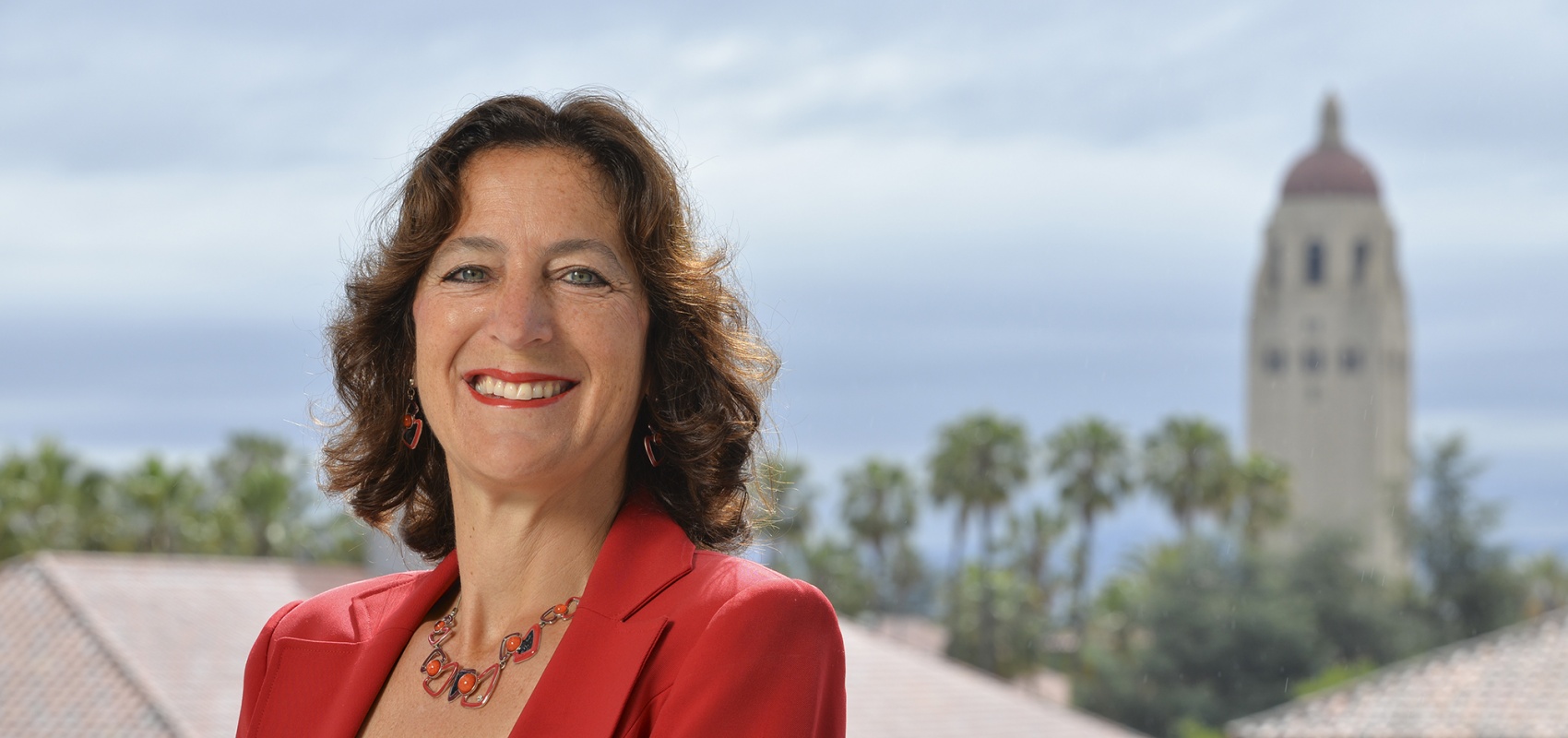Andrea Goldsmith becomes first woman to win the Marconi Prize, shattering a glass ceiling in the field of telecommunications
Tom Abate
Professor Andrea Goldsmith has been awarded the 2020 Marconi Prize for her pioneering contributions to the theory and practice of adaptive wireless communications, intellectual breakthroughs that have helped improve the cellular and Wi-Fi services upon which billions of people depend on daily. Goldsmith, a professor of electrical engineering, is also honored for her leadership in increasing diversity and inclusion within the engineering profession.
The Marconi Prize is the flagship award of the Marconi Society, a global foundation dedicated to continuing the legacy of Guglielmo Marconi, the inventor of radio. Recipients of the Marconi Prize are designated as Marconi Fellows. Goldsmith is donating her $100,000 award to the Marconi Society to start an endowment to fund technology and diversity initiatives.
“I am so deeply honored and humbled to become a Marconi Fellow,” said Goldsmith, who is the Stephen Harris Professor in the School of Engineering. “The honor is particularly meaningful to me at this moment in time, when our information and communications technologies are enabling our universities, companies and the entire social ecosystem to function in a suddenly all-online world, as well as calling attention to the critical importance of digital inclusion.”
The award was announced April 30 by Vint Cerf, a former Stanford professor who helped lay the foundations for the internet. Cerf became a Marconi Fellow in 1998 and serves as the organization’s chairman.
“Andrea has enabled billions of consumers around the world to enjoy fast and reliable wireless service, as well as applications such as video streaming and autonomous vehicles that require stable network performance,” Cerf said. He added, “Andrea’s personal work and that of the many engineers whom she has mentored have had a global impact on wireless networking.”
Goldsmith, whose father was a mechanical engineer and mother a cartoonist for The Rocky and Bullwinkle Show, earned her undergraduate degree at the University of California, Berkeley, in 1986, just as the first cellular networks were being built. After a brief stint in private industry, she resumed her studies and began her PhD research. During this time, she began to develop the theories and engineering techniques that today allow wireless networks to adapt to ever-changing variables, such as location, signal strength and interference that is intrinsic to untethered electronic systems.
That work, which led ultimately to her Marconi Prize, became the thread running through her decades-long career as an academic and entrepreneur, most of it pursued at Stanford. Goldsmith, who will become dean of the Princeton University’s School of Engineering and Applied Science in September, reflected on the many students she has mentored and the faculty relationships she has forged in a farewell story saying, “A piece of my heart will always remain at Stanford.”
